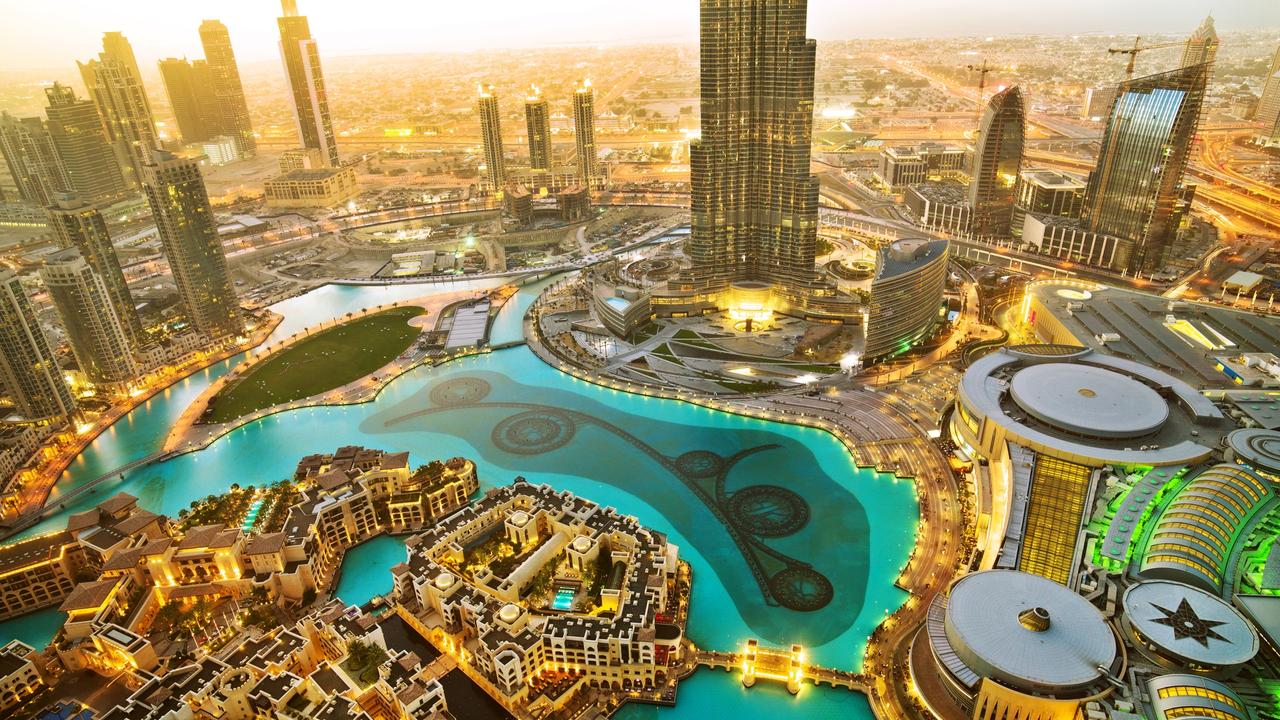Cheat Sheet: Abu Dhabi etiquette and top things to see
It’s one of the most progressive spots in the Middle East with world-class attractions and luxury stays but there is one thing tourists should never do.
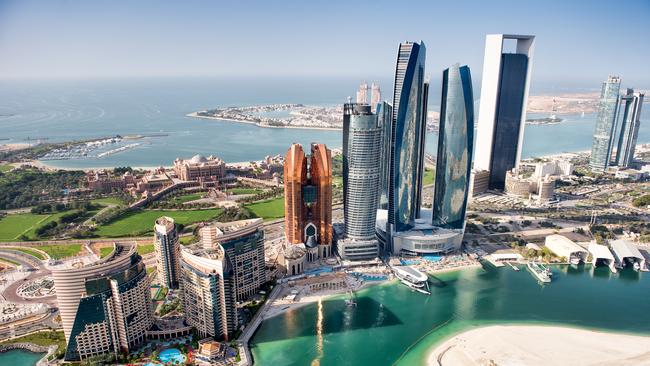
Middle East
Don't miss out on the headlines from Middle East. Followed categories will be added to My News.
A twinkling metropolis backing onto both the desert and the sea, Abu Dhabi is a cultural oasis that’s rich in tradition and progressive in spirit.
As the capital of the United Arab Emirates, which was founded by Sheikh Zayed in 1971, Abu Dhabi is ruled by the Al Nahyan family and is the largest of the seven emirates.
With over 200 islands and 700km of coastline, it accounts for almost 90 per cent of the UAE’s total area and its cosmopolitan offering of world-class art, adventure, lavish stays and dining make it one of the Middle East’s most sophisticated gems.
WHEN TO GO
The sun shines in Abu Dhabi year-round. Visit between November and April in the winter season when temperatures hover between 20 and 30 degrees and there’s plenty to do outdoors. Huge discounts on hotels are to be had between May and October, but temperatures can reach almost 50 degrees and cabin fever is an endurance. January and February are the coldest months, with the thermometer dropping below 15 degrees in the evenings, so bring something warm.
Take into account that the Holy Month of Ramadan shifts forward according to the Islamic calendar each year and dates are typically announced last-minute upon the sighting of the new moon.
STOPOVER: FIVE HOURS IN ABU DHABI
WHY I’LL NEVER STAY IN THE AIRPORT HERE AGAIN
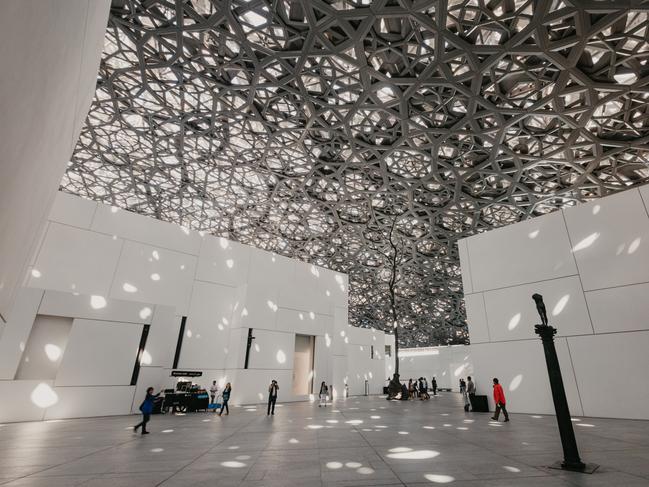
CULTURE AND ETIQUETTE
The UAE is an Islamic country, but despite it being one of the most progressive in the Middle East, there’s etiquette to follow. As a general rule, Emiratis don’t shake hands with members of the opposite sex for religious reasons. A verbal greeting is fine. Pointing the soles of your feet towards someone when sitting is also considered offensive.
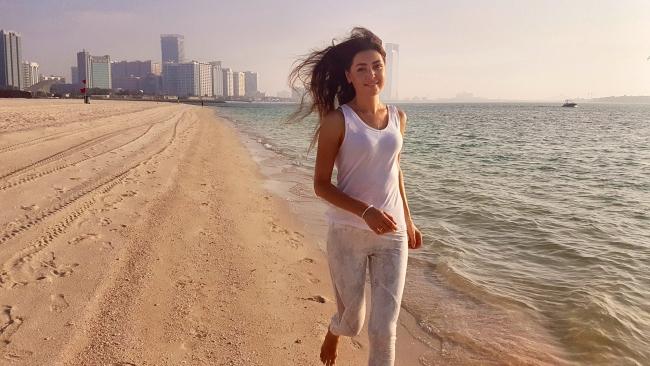
During Ramadan, Muslims fast between sunrise and sunset and its forbidden to eat, drink water, smoke or listen to music or entertainment in public. That applies to tourists, also. Most malls and hotels cater to this, however, with dining outlets curtained off from public view. Tourists visiting during this time should dress more conservatively.
GETTING AROUND
Abu Dhabi doesn’t have much in the way of public transport, so taxis or ride-sharing apps are the best way to get around, and they’re cheap. Uber works in Abu Dhabi, but Careem is a local and equally efficient option.
If you’re travelling with young children, select the Careem Kids option to order a car equipped with a top-of-the-range child seat for infants and toddlers up to four years old. Ladies-only cabs with women drivers can also be requested via the local taxi service.
LESSON IN LINGO
More than 80 per cent of the UAE’s residents are expats from countries such as India, Pakistan, Iran, Egypt, the Philippines and the UK. Almost every language under the sun is spoken here, but English is most widely used.
In the rare chance you do have the opportunity to speak Arabic, start with the greeting ‘salaam alaikum’, which translates to ‘peace be with you’. ‘Shukran’ is thank you. The ubiquitous ‘Inshallah’ or ‘God willing’ might just be the UAE’s most-loved and loathed expression. It’s used at the end of a discussion as a friendly, throwaway term that could either mean no or maybe. Anyone’s guess.
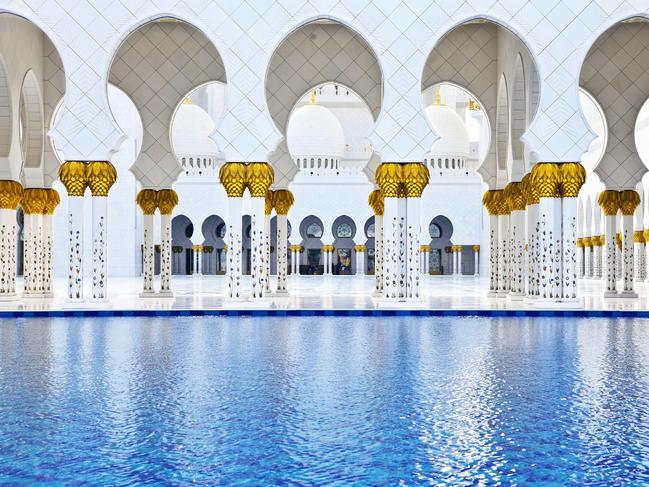
DRESS FOR SUCCESS
The dress code for tourists in Abu Dhabi and the UAE overall is pretty relaxed, with one exception. If you’re visiting places where locals frequent, such as malls or mosques, wear modest clothing. Mall security will ask you to leave if they consider you to be dressed offensively.
Women should cover their knees and shoulders, while men can get away with long shorts and T-shirts. For ladies, it’s always handy to carry a scarf or light cardigan in your bag. At the Sheikh Zayed Mosque, women must wear the traditional abaya and hijab provided, while men can wear long trousers and half or full-sleeve shirt.
MUST-DOS
Visit world famous landmark Sheikh Zayed Grand Mosque; see classic art in the Louvre Abu Dhabi (closed on Mondays); splash around at Yas Waterpark; ride the world’s fastest rollercoaster at Ferrari World; go kayaking in the mangroves; go dune-bashing in the Liwa Desert; attend the F1 Grand Prix and after shows in November each year; go on safari at Sir Bani Yas Island; shop for good-value gold and diamonds at the Gold Centre at Madinat Zayed; try Arabic coffee; get pampered at Emirates Palace Spa; tour the Abu Dhabi Falcon Hospital.
LOCAL TASTES
Despite the UAE having its own national cuisine, Arabic and Lebanese fare such as hummus, taboulleh, foul, grilled kebab and shawarma are more prevalent here. Head to Al Mrzab or Yadoo’s House to try authentic, bedouin-influenced Emirati dishes, such as lamb machboos, a fragrant rice dish with meat and spices, fish biryani and loqaymat or fried doughnut-like dumplings drizzled in sweet syrup.

WHERE TO STAY
Luxury is on another level in the UAE and some of the world’s most exquisite stays can be found in the capital. Accommodation typically falls into three categories: city, beach and desert, and standards are set extraordinarily high.
The striking new Abu Dhabi Edition, is located downtown at Al Bateen Marina, with food designed by Michelin-starred chef Tom Aikens. Then there is Saadiyat Island’s new kid on the block, Jumeirah at Saadiyat Island Resort. It’s the ultimate resort, with 293 rooms, 400 metres of beachfront on the Arabian Gulf, three swimming pools and reusable water bottles for guests.
Voted the world’s most Instagrammable hotel by Luxury Travel Adviser this year, Qasr Al Sarab by Anantara, is a two-hour drive from Abu Dhabi into the Liwa Desert. With its terracotta dunes and traditional bedouin architecture, it’s the magical kind of Arabia you’ve seen only in fairytales.
DRINKING ALCOHOL
‘Adult beverages’ are available at hotels and licensed bars in Abu Dhabi and drinking alcohol within these establishments is perfectly legal for tourists. The catch is that being drunk or disorderly in public, however, is illegal and can lead to arrest or even jail time, so keep it classy.
On arrival to the airport, each traveller can bring in four litres of alcohol or one carton of beer from the local duty free.
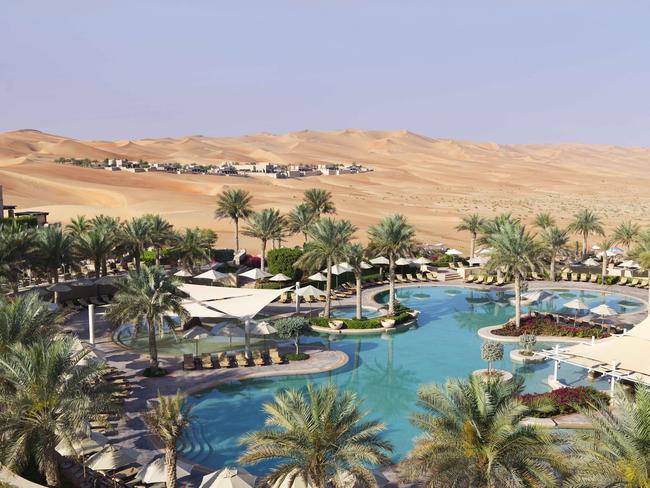
For more travel news and inspiration sign up to Escape’s newsletter.
Originally published as Cheat Sheet: Abu Dhabi etiquette and top things to see

